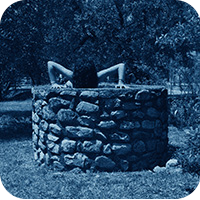Iraqi on the corner
Yesterday I hosted some Chinese partners from the Forbidden City in Beijing. They missed the Tibet protest march by one day which surely spared me some awkward questions, but we could not escape the Iraq war anniversary march. As the protesters filed past our restaurant window last night, the translator asked me “Why doesn’t your government stop it?” Which, you will admit, I could plausibly have taken to mean “the protest” given the inability to do such a thing in China — but she meant the war itself. I had to chuckle at the simultaneous complexity and simplicity of that question.
I tried to explain America post-9/11. I tried to explain the difference between urban centers and middle America. I tried to explain my personal beliefs. I did none of these well at all.
Later that night, after I had bid the Chinese 再见, I stopped at our corner store. The owner there is an Iraqi fellow named Amir. He knows my family and we know him. He’s the genial, Jacobsian neighborhood shopkeeper. The kind of guy who always rounds down the amount at the register.
But last night he was irate. He pointed to the television that’s always on, loudly, to an Iraqi satellite station. The coverage was all about an Iraqi cleric who had been murdered, the archbishop of the Chaldean Catholic church, the biggest Christian Iraqi community. Amir is Christian too. He said “They killed him. They are evil.” I asked who “they” was and he spewed “Muslims”. “There are no good Muslims,” he said.
I shook my head and said that there are plenty of good Muslims and quite a few who would agree with his outrage at the murder. But he would have none of it. He told me I only thought that because I knew American Muslims who have moderated their views in public. But he assured me that they too were evil, deep down. I started to explain that in fact most of the Muslims I know are devout and live in Cairo, but I could not get a word in. He was on the verge of tears. I told him I would prefer not to argue, shook his hand, and left.
I was troubled by it all, on this fifth anniversary of invading a country on a weapons-hunt. So I e-mailed an Iraqi colleague of mine, who also happens to be Christian, for her perspective.
Sad to say that even growing up under Saddam Hussein’s regime, I never felt any of this animosity. We were all in the same deep shit, Christians and Muslims alike, both being equal victims of a cruel regime. But at least we were free to practice our religion without any threats or dangers from Muslims. I wish I could say the same today.
There are moderate, loving, peaceful Muslims, but unfortunately their numbers are dwindling and their voices shrinking. What bugged me about the archbishop’s killing is the hypocrisy: can you imagine for a second how the Muslim community would’ve reacted if a senior religious figure was kidnapped by Christians and found dead? So while I don’t agree with Amir’s feelings, I kind of understand why he feels like that. A dangerous catch-22.
It’s all upsetting but maybe the more so because the cleaving of national identity along religious lines is not unique to Iraq. You see it here too.
The media and blogosphere of course is alight with commentary on five years of occupation. Lots of acrimony and analysis. But I return to the thought that there must be many people like Amir on both sides, full of hate, deeply sad, and not giving a damn about the cartographic assemblage known as Iraq.













